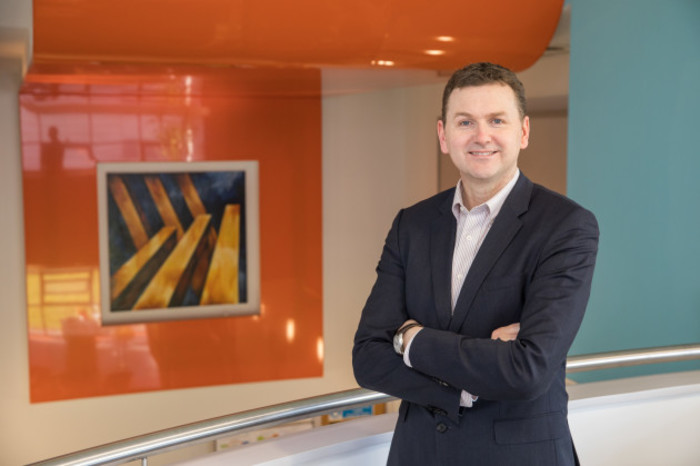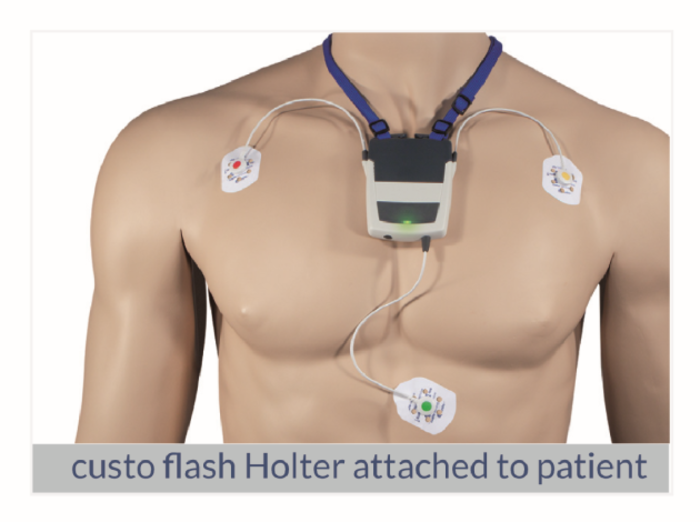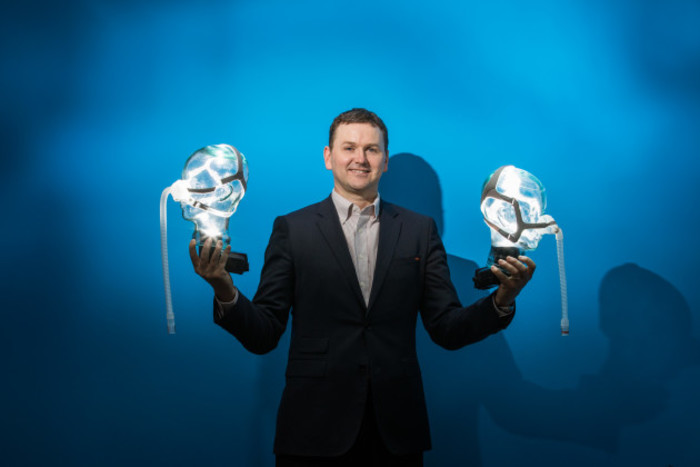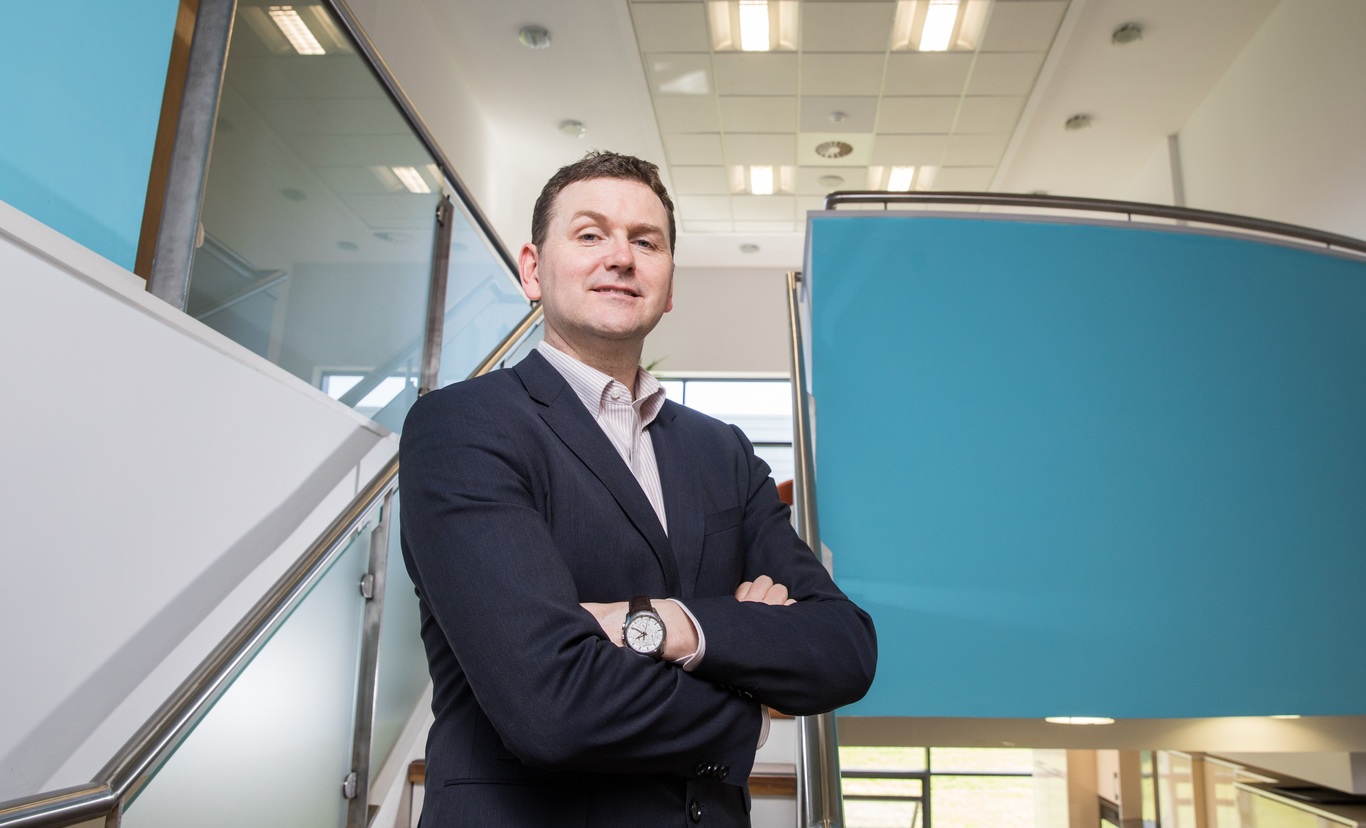'My dad's heart attack made me change career. I wanted to have an impact'
As part of our How My Business Works series, we profile medical devices seller Promed.
THE AVERAGE AGE for a man to have a first heart attack is about 66. Barry Russell’s father had one at just 48.
Russell was in his early twenties and had only recently finished college when his father suffered the attack, and the incident prompted a shift in his worldview.
The Limerick native had studied technology and had started working with Intel on a graduate programme, but decided to completely change tack when he saw the impact a tiny wire mesh tube had on his father’s life.
“My father was one of the first recipients in Ireland of a coronary stent, which is like a wire mesh that props up your artery,” he tells Fora. “It’s not invasive, and now the first port of call is to use a stent rather than do a coronary bypass.
“Here was a brand new technology that meant that my dad didn’t have to have his chest cracked open and spend six months recovering from surgery. It made me aware of the influence that industry has on medicine.
“I wanted to work in an industry that would have an impact on people. (Medical devices) is the closest thing to being a doctor. You’re not face-to-face with a patient but you have a significant impact on their lives.”
With his father stablised by the stent, in 1997 Russell started working as an engineer in research and development for international medical devices giant Boston Scientific’s Galway branch.
NeoSurgical
After three years there he moved to multinational medical giant Johnson & Johnson, where he spent 10 years selling the company’s medical devices, before setting up his own business, neoSurgical.
“With neoClose, we developed a device that would close the wounds from keyhole surgery,” he says.
“It was four years in development, and then I gained FDA (US Food and Drug Administration) authority and went to the United States to introduce it there.”
 Barry Russell
Barry Russell
Russell moved to the US in 2013 with his wife and three children as he bid to crack the foreign market and make the product a success.
For the next few years, Russell worked on establishing the company in the US and building its customer base.
The move paid off and US investor SAIG took an interest in the firm, eventually buying a stake in neoSurgical in 2015 for $5.6 million in a deal that made neoSurgical worth €21 million.
The next year, Russell left the business and returned to Ireland while casting around for a new project.
“When I came back to Ireland, I had spent almost 20 years in secondary and acute care. I wanted to do something different with my career,” he says.
“I had worked with guys who knew about this company called Promed, which had a role more in primary care rather than secondary care. The more I read about it the more interested I got.”
Promed
Based in Killorglin, Kerry, Promed was set up in 1985 by the late Peter Bickel, a German national who lived in the area. Initially, it specialised in selling veterinary, dental and medical equipment throughout Ireland on behalf of large medical-device companies.
The firm buys in products from abroad and sells them on to medical practitioners in Ireland.
It grew steadily after its inception, and started attracting outside attention when it reached almost two dozen staff after the turn of the century.
Dublin-based PEI Surgical, a larger medical and surgical company based in Dublin, took an interest in Promed and acquired the business in 2002. As part of PEI, Promed continued to grow and now has about 45 staff, the majority of whom are based in Kerry.
Promed has since moved out of the veterinary and dental markets, although it still sells orthodontic products.
However, the firm is now focused on buying in and distributing equipment for professionals working in primary healthcare: the first port of call for patients such as GPs and pharmacists.
“Promed sells everything to equip a general practitioner, from the furniture in a clinic to the equipment and technology,” says Russell.
“For example, we would sell blood pressure monitoring and heart monitoring kits.
Installing tech
Going back to his earlier theme of industry pushing forward medicine, Russell says that the company was instrumental in the wider roll out of 24-hour heart monitoring holter device kits in Ireland.
This was also part of the company’s move towards installing expensive devices that GPs would normally not be able to afford. Rather than paying upfront, the GP is charged by Promed every time they use the machine.
“A 24-hour heart monitoring holter device normally costs €5,000 to sell to a GP, which is very expensive, and the GP may not have the expertise to read the output of the report,” he says.
“We’ve decided that we will put in the equipment and charge on a per-use basis. We provide the tech and then the software is streamed to a consultant cardiologist, who then writes a report back to the GP that they can read.”
 A holter device sold by Promed
A holter device sold by Promed
Most of the company’s staff either work at buying in products from suppliers, selling them onto GPs and pharmacists, or in the logistics end of the firm in its warehouse.
While Russell doesn’t reveal any financial information about Promed, he says that the business is growing and is looking to expand to 60 people over the next five years.
Buying and selling
The company’s medical devices come from its near 200 suppliers. “We’ve got some international suppliers with big brand names,” says Russell. For example, we deal with (Swiss healthcare giant) Roche for blood testing.”
Russell says that there are about 3,500 GPs in Ireland, “and at some point or other we have been in touch with all of them”.
He didn’t say exactly how many pharmacists the company deals with, although he did add that it was a “significant” number.
Promed only sells into the Republic, not dealing with the North because it has a completely different healthcare system.
“I think an expansion into the North would precipitate an expansion into the NHS in its totality (ie, the rest of the UK),” says Russell.
“It’s more on the medium- to long-term horizon with Brexit making things more uncertain.”
Service
There are several other prominent medical device supply companies in Ireland, such as Fannin and MMS Medical, both of which are based in Dublin.
Russell says that Promed differentiates itself from its rivals by the quality of service it provides. As well as selling devices, the company also offers training and has engineering and tech personnel on its own staff that can provide in-house support for customers.
Although Russell says the company is competitive on price, being the cheapest is not its focus. “We’re more about developing a working relationship with the customer,” he says.
 Barry Russell
Barry Russell
The company is now focused on steadily growing its staff and its presence in the Irish market.
Change
The big shift will come as the company moves from a model of selling products on a one-off basis, to installing expensive equipment into GPs offices with a view to getting a stream of recurring revenue.
“At the moment over 90% of the business is us just selling a product but we want to shift our business where at least 50% of our business comes from providing tech and services to the community,” he says.
Russell also often speaks about how he wants to help support a drive in Irish healthcare that would see more of an emphasis on primary healthcare.
While his father is still alive now, he recently was treated for an abdominal aortic aneurysm, a condition which could lead to a blood vessel bursting. Russell thinks he could have headed off many of his health problems altogether with better early care.
“If my father had more routine checkups and had been more aware of his health then maybe he wouldn’t have required a stent,” Russell says. “I think that we can invest more in wellness and primary care, services that will serve a patient well.
“If we achieve our aims, a lot more patients will have more services available to them. I can’t think of anything better to do with my life.”
This article is part of our weekly series examining the nuts and bolts of businesses. If you would like to see your company featured please email news@fora.ie.







